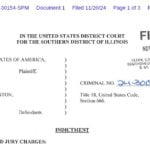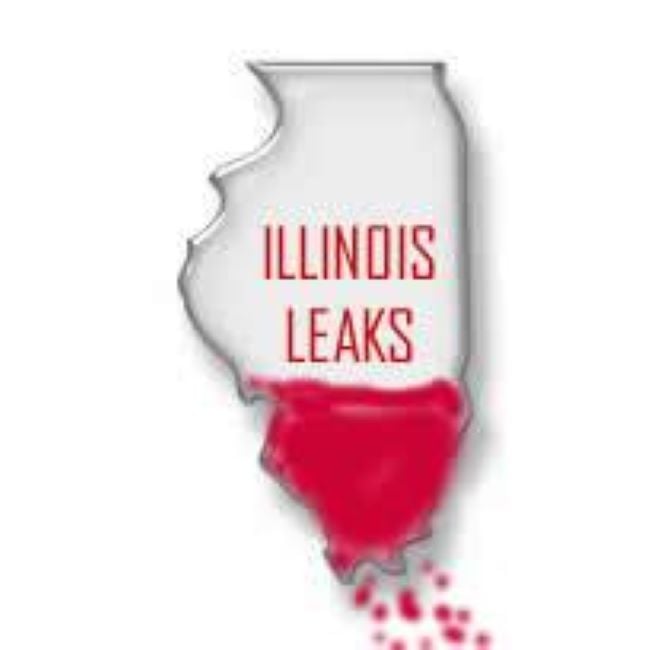Illinois (ECWd) –
During the legislative hearing last year, a Representative made a comment regarding the Illinois Department of Natural Resources leasing farm grounds. The concern was if IDNR could lease out their farm ground why couldn’t the county government? The bill never got a vote that year, but we did dive into the legislator’s comments about IDNR.
We submitted a Freedom of Information Act request for a copy of all farm leases as well as the following in a separate FOIA.
- Copy of the bid publications for the farm leases that were provided in my last FOIA request.
- Copy of the bids received for the available farm leases that were provided in my last FOIA request.
- Copy of any property tax exemption documents pertaining to the leased farm ground for the leases provided in my last FOIA request
As a result of that FOIA, we did obtain copies of about half of all the state leases. As far as the above listed items, DNR failed to comply with numbers 2 and 3 which has resulted in a FOIA lawsuit over their failed compliance so we will stick with the lease information.
A recent change in the counties code pertaining to county government and how they can use their farm ground has created more confusion than we would have ever thought possible, because the county has always been allowed to lease their property to a private or public entity.
The confusion comes from a lack of understanding of terms as well as the long-established case law and our state constitution as it relates to public purpose.
Leasing to a “private entity” does not mean the same thing as leasing to a private farmer whose sole use of the government property is to make a profit in his business. It’s well established that government property cannot be leased for a nonpublic purpose, which leasing for private profit is in fact a nonpublic purpose.
The type of lease is what determines if there is a public purpose. The use of the land must meet the public purpose as outlined in the Annotated Constitution for legislatures.
For example, one of DNR’s established purposes includes wildlife conservation. Within their farm leases are clearly defined programs that are tied to the government operation as well as their mission of wildlife conservation, which includes hunting.
Reading the language found in the vast pages of contracts it becomes clear there is an identified public purpose and the primary use of the land is consistent with the mission of IDNR.
“1.2. SUPPLIES AND/OR SERVICES REQUIRED: Many Department of Natural Resources owned or managed lands contain tillable acreage. These lands have the potential to generate revenue if used to grow agricultural products. It is the Department’s policy to minimize the use of such lands for agricultural production in favor of establishing annual or permanent wildlife habitats. However, the Department also recognizes that certain agricultural practices and farm income can provide needed resources for wildlife habitat, improving habitat diversity, developing cover and edge effect, and maintaining annual vegetative stages. The Agency requires services to perform agricultural farming services. See Attachment B for cropping plan, field numbers, crop and acreage per field.” (emphasis added)
The above paragraph outlines the IDNR’s public purpose as it ties to wildlife habitat. It even outlines both agricultural practices and farm income can provide needed resources for their primary mission of wildlife habitat, improving habitat diversity, developing cover and edge effect, and maintaining annual vegetative stages.
“1.4.11 The Agency may open the premises to public hunting.”
Allowing the public to use the land for hunting, which happens all across the state and meets the second prong of public purpose, use of the land.
“1.4.28 Lessee is responsible for the property tax assessment for each crop year. Lessee will be invoiced by the County Tax Collector.
Since there is an incidental income made by the private farmer, the land is not tax-exempt under the Illinois Department of Revenue rules so the farmer is obligated to pay the property tax, NOT the taxpayers!
“IDNR may require the Lessee under this cropping plan to leave all or a certain portion of the crops in the field standing without being harvested. If Lessee fails to comply with this requirement, IDNR will receive the rent per acre from the Lessee as set forth in Section 2.1.2 for each acre that the Lessee harvested in violation of the cropping plan. Non-adherence to cropping plan Instructions may be cause for termination of the farm lease.”
This clause is one of the most compelling. IDNR may require the lessee to leave ALL or certain portions of the crops in the field. The purpose is for wildlife habitat and feed during the winter. That serves the primary purpose of the IDNR. Several of the contracts required 100% of the crop to stay in the field for dove hunting. Another example of a public purpose being met by the use of the land.
Several of the county-owned lease agreements we have reviewed met the public purpose based on the use of the land, such as airports, nursing homes, forest preserves, and in one case an IGA with IDNR that established the ground in a CRP program.
The above is a simple down-and-dirty example of how leasing public property is legally done. An example of how it is being done illegally can be found in about 20 or so counties in the state that lease their ground to a private farmer for his sole purpose of profiting off the taxpayer-owned ground. Such an action violates the long-established case law on the use of public property and our Illinois Constitution. Those who continue to justify breaking the law because 20 or so counties are doing it tell us we have lost our way when it comes to following the law.
The following three links are to the IDNR contracts provided to us in our FOIA request back in April of 2022. Note that they are very large files and include thousands of pages of information. One thing we did notice and have concerns with is the price per acre that IDNR is getting for our taxpayer-owned ground. Some of the leases are for as little as $5.00, $8.00, and $10.00 an acre.








3 Comments
Michael Hagberg
Posted at 09:51h, 06 SeptemberBelleville is talking about leasing 39 acres (a portion of a parcel) to a company that will erect a solar farm. Would this parcel loss it’s tax exempt status?
John Weaver
Posted at 16:03h, 05 SeptemberExcellent farm ground can rent for as much as $500 @ acre!
SC
Posted at 08:43h, 07 SeptemberThis is true but the landlord is paying the property tax out of the $500 and the farmer can harvest 100% of the crop. If they are openly accepting bids from everyone, they are getting the fair market value of what they are leasing. Even if this was excellent farm ground, to compare this with a regular cash rent farm,take the $500 and subtract the property tax bill, then lower it by the percentage that can’t be harvested and then subtract the other costs per acre to farm it. Depending on the percentage of the crop that must be left, you can easily wipe out any profit margin even on excellent farm ground.
As for leaving 100% of the crop for Dove Hunting, you would have to pay me to farm that and assure me that I wouldn’t be arrested for baiting wildlife.